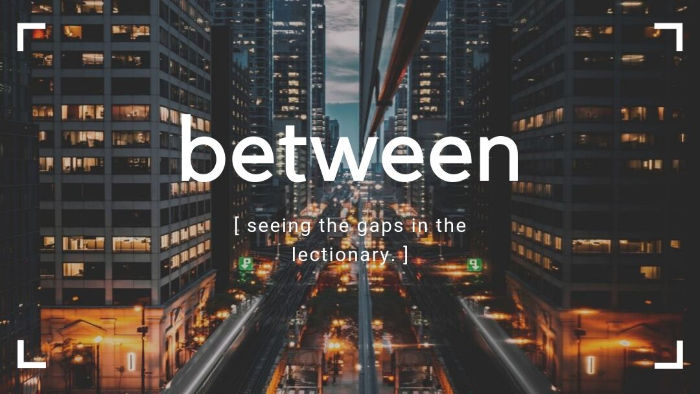A look at the gaps in the lectionary.
This week: the gap between Advent 4A and Christmas 2A.
The text: Matthew 2:16-18.
Christmas is a funny season.
We’ve got the main theme down. A baby Jesus is born as the Incarnate One. The rest…well it just gets so weird. And because it’s a feast that occurs on a date on the calendar rather than a particular Sunday, the calendar gives us a different number of Sundays for a fixed amount of time.
So some years, Christmas is on a Wednesday. So we will have two Sundays before the Epiphany. Sometimes it’s just one.
And then, for the third mass of the Incarnation, celebrated on Christmas morning, we use John 1. And then we use the same gospel again on the first Sunday after Christmas. I’m all about John 1, even if it pushes us to think beyond the baby.
But we get something different for Christmas 2. We get three options for continuing the birth story in Matthew or Luke.
Whichever you hear this Sunday, I’m sure will be wonderful and good. And let’s be honest, these 12 days aren’t nearly long enough. Not for us who really want to dive into the incarnation for more than one day.
But there is something conspicuously absent from the Christmas 2 lectionary options.
The Massacre of the Infants
As I described before, this passage is hidden in the first week of Christmas, when the world is throwing their trees to the curb, packing up their decorations, and overloading dumpsters. December 28 is the day we honor as Holy Innocents. The liturgical purists know what’s up.
So, in a church sense, we’ve already done this. But in a pastoral, proclaiming the gospel sense, have we? How many of us went to church the other day and heard this gospel? When many evangelical friends move the Christmas Feast to the Sunday before, I’m going to say not many.
And yet it is far more important to Matthew’s depiction of the Birth Story. Remember that the birth is told in passing—as having happened. But this is enmeshed in the coming of the Magi, Herod’s fear of losing power, and the flight into Egypt.
Matthew’s gospel may contain a birth story, but its central origin story of Jesus is the flight into Egypt. And this is why they are there: fleeing the murderous rage of a tyrant king. Jesus became a refugee in Egypt like the children of Israel.
For the followers of Christ to skip this story shows just how divorced we are from the message Matthew has for us.
The Message
The arc of this story is huge and pregnant with meaning. Foreigners visit the king of Israel to pay homage. The puppet King of Israel fears for his thrown and massacres the infant boys in and around David’s royal city. The Holy Family flee to Egypt to save Jesus. And when they hear that Herod has died, they go to Nazareth to hide from Herod’s son.
So, some of the worthwhile themes:
- The gospel expands beyond Israel.
- Tyranny and murderous rage of Empire.
- A return to Egypt when God said to never go back there.
- Jesus gains the refugee status his ancestors had.
- This true royal family is subjected to the murderous rage of the tyrant usurper—a favorite theme in literature.
- Jesus as the new Moses: the boundary-breaker and liberating leader.
But if we skip over this horrible story, we don’t only miss out on a useful theme. We miss the guttural brutality of hearing the grinding boot of empire and the principal result of fear.
And at a time when we are so eager to receive only joy, only good news, only the kind of stories we want to hear, we are most prone to look away or skip the uncomfortable bits.
In other words, we are most prone to miss the message of not being afraid when we are most afraid to hear a bad message.
To us, this shouldn’t just be a conventional literary theme: that the rightful king of Israel is almost murdered by the one on the throne. We should see the results of the mix of power and fear: the massacre of innocents.
It should resonate with us when we hear about modern-day massacres. The origins are the same: people in power afraid to lose it; and often using fear to justify slaughter.
We should hear it in the American story. In the repeated massacre of indigenous populations, in African slaves, and in the Jim Crow era. And we should hear it when we put the weapons in the hands of tyrants who massacre their own people.
Skipping over the bad news because we’re afraid of it: that is quite literally the root of every massacre.
